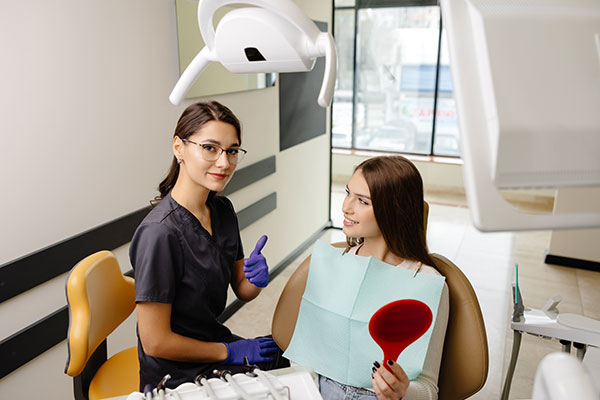 A dental restoration can repair your teeth and improve your smile. Following the recommended aftercare instructions is important to ensure the results last as long as possible. Whether you are getting a filling, a root canal, or a tooth pulled, slacking on aftercare can lead to pain and discomfort. Save yourself some trouble and avoid complications with proper care. This article will discuss how to care for common dental restorations correctly.
A dental restoration can repair your teeth and improve your smile. Following the recommended aftercare instructions is important to ensure the results last as long as possible. Whether you are getting a filling, a root canal, or a tooth pulled, slacking on aftercare can lead to pain and discomfort. Save yourself some trouble and avoid complications with proper care. This article will discuss how to care for common dental restorations correctly.
Dental fillings: Aftercare do’s and don’ts
Dental fillings can repair tooth decay, also known as “cavities.” Fillings typically consist of tooth-colored composite resin, porcelain, gold, or silver amalgam. Cracked teeth are also sometimes restored with fillings.
Aftercare will depend on the type of filling used. However, it is a good rule of thumb to wait to eat until the numbing wears off. This may take a couple of hours. Since composite fillings are hardened with a UV light in the office, it is typically fine to chew with them. Avoid chewing with amalgam fillings for at least 24 hours. Put off eating sticky foods, hard foods, or drinking very hot or cold liquids to prevent dislodging the filling.
It is normal to experience some discomfort and sensitivity to heat and cold for up to two weeks after filling a cavity. Over-the-counter (OTC) pain medication may help the patient manage this discomfort. In addition, rinsing with salt water may help relieve sore gum tissue. However, if these symptoms do not dissipate after two weeks, consult the dentist.
Root canal aftercare
A root canal is required when tooth decay extends into the root of the tooth (the pulp) and leads to an infection. The dentist will remove the infected pulp, clean the area, and fill it. A dental crown may be placed on top of the tooth as well.
While the procedure is no longer painful, the tooth may be sore after getting a root canal. Postoperative soreness can last for a few days. In the meantime, patients should avoid chewing with the treated tooth. If the tooth has an infection, patients need to follow all instructions for recovery, including if antibiotics were prescribed. OTC pain medications, ice packs, and saltwater rinses may help soothe the pain.
Aftercare for tooth extractions
Extraction may be the only option when teeth are severely infected or damaged beyond repair. A simple extraction is when the tooth can simply be pulled because all the issues are above the gum line. A surgical extraction is necessary when some infected gum tissue must be cut. Both types of extraction require similar aftercare:
- Take all prescribed medications: After extracting a tooth, the dentist may prescribe painkillers and antibiotics. Take them all as recommended.
- Take time to rest: The body needs to heal, so do not do any heavy exercise following a tooth extraction. Instead, it is best to rest in bed and catch up on movies or reading.
- Keep the affected area clean: Do not brush the extraction site for a few days. After 24 hours, gently rinse the area with salt water or antimicrobial mouthwash.
Learn more about dental restoration aftercare
Caring for the mouth after a restorative dental treatment is the key to getting lasting results. It is also crucial for the patient’s well-being. Call our team for more information on how to care for the mouth before and after dental restorations.
Request an appointment or call Smiles by Design, PC at 256-660-3233 for an appointment in our Huntsville office.
Recent Posts
A dental restoration can stop the progress of dental problems from decay or injury. Dental fillings can treat mild to moderate cavities. Your dentist will assess your teeth and see how many need fillings. Here are the things to expect before you get this dental restoration.The dentist will examine the patient’s teeth and see how…
Fixing a broken tooth right away is important. This dental damage may seem like nothing more than a cosmetic problem, but it can lead to terrible consequences. Seeing a dentist sooner rather than later can provide immediate relief. If you want to find out the treatments for a broken tooth and its complications, here are…
People who are diligent with oral hygiene may still experience tooth decay or damage that requires dental restorations. Even what may appear to be minor damage should be addressed and repaired by a dentist. Not treating chipped, cracked, or missing teeth can cause serious oral health problems that may otherwise be prevented with simple dental…



